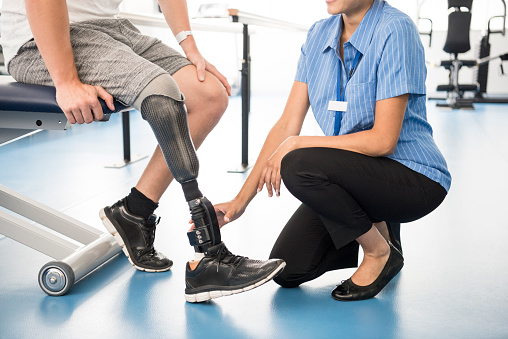Orthotics and Prosthetics

Orthotics and prosthetics are the medical specializations that design and provide a variety of devices to regain mobility for patients with limb loss. These devices include splints, braces, and artificial limbs that are made to match the missing body part. The field is a rapidly growing one and is expected to see an 18% increase in employment over the next 10 years.
Career Profile
People who work in orthotics and prosthetics often need specialized equipment to manage health conditions such as spinal or back issues, or foot problems. These professionals help patients by providing splints, braces, or shoes that are customized to their individual needs and physical characteristics.
The job requires strong interpersonal skills and the ability to communicate in a professional manner with other healthcare professionals. They also need to be able to adapt to new technologies and methods of performing their jobs.
Working Conditions
Most orthotists and prosthetic companies New Jersey work in a medical facility or hospital setting with other healthcare providers. They evaluate patients using interviews, physical examinations and observation of biomechanical movement patterns to develop a treatment plan. The team then implements the plan and monitors outcomes.
There are many benefits to becoming an orthotic and prosthetic professional, including the ability to work in a highly rewarding field. The profession provides excellent opportunities for research and development of new device designs, as well as teaching and conducting clinical trials.
O&P practitioners are members of the health care team and must collaborate with other medical and surgical specialists to determine a patient's specific needs. This includes a physiatrist, orthotist, prosthetist, nurse, physical and occupational therapist and social worker.
Education and Training
To become an orthotic and prosthetics company in New Jersey professional, you need a bachelor's degree in the field. You then need to complete a graduate program in the specialty. Most O&P masters programs require students to complete a year of residency in the field before taking the certification exam.
Your education will include courses in anatomy, physiology and other allied health fields. You'll learn about materials science, engineering and the application of scientific concepts in the clinical setting. You'll also study the application of orthotic and prosthetic techniques in a variety of clinical settings, as well as how to collaborate with other healthcare professionals.
You'll also learn about the latest technologies in the industry, including advanced prosthetic devices and microprocessor-controlled knees that improve gait stability and walking efficiency. You'll also learn about the challenges and rewards of educating future clinicians in this unique field.
O&P clinics and conferences are often held to facilitate discussion between patients and their care teams. This can be a very important part of the process of helping patients obtain and maintain the best possible quality of life.
The field of orthotics and prosthetics is unique in the way that it combines the knowledge and skills of material science, engineering, and healthcare. It is a dynamic profession that enables the practitioner to work with a multidisciplinary team in a variety of clinical settings, providing care for clients with various musculoskeletal disorders. Know more about prosthetics at https://www.britannica.com/science/prosthesis.
